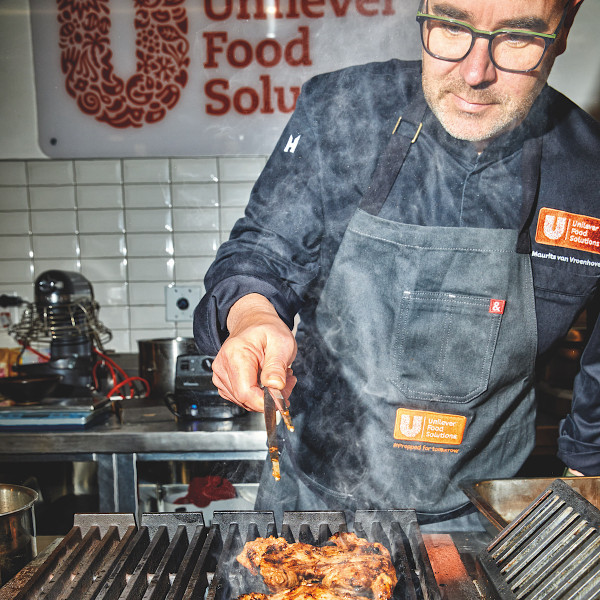News
A Collection Of Restaurant, Food, Drink And Hospitality News From All Over South Africa
The Race to Revive Forgotten Food Traditions
21 July 2025
There was a time when your grandmother's vetkoek recipe was just… well, your grandmother's vetkoek recipe. The method she used for making delicious, deep-fried dough bread you couldn't wait to smother with syrup or her savoury mince. But definitely not something you'd expect to find on a modern menu. Those days are changing - fast.
Welcome to the Culinary Roots movement, tipped as one of the defining global food trends of 2025, where chefs and food professionals are reviving time-honoured cuisine and techniques to reconnect with their culinary heritage. This is highlighted as one of four megatrends in the Unilever Food Solutions Future Menus 2025 report, based on insights from over 250 chefs across 75 countries.
“The most exciting plates aren't necessarily showcasing the latest molecular gastronomy or imported superfoods – they're bringing back cuisine that was nearly forgotten, and doing it with serious style,” says Yonela Motloung, Marketing Lead at Unilever Food Solutions South Africa.
So, what is driving the trend towards traditional?
- Desire for Authenticity: Instead of another pasta dish or poke bowl, many diners are looking for food that reflects local identity and connection - the kind of richness ancestral recipes provide.
- Rooted in Sustainability: Long before sustainability became a buzzword, ancestral cooking nailed it - using what was local, seasonal, and available - no waste, no fuss.
- The Health Factor: While modern processed foods are loaded with preservatives, traditional cooking typically focuses on whole, fresh ingredients and simple preparation techniques.
South Africa has a culinary heritage that is a rich mosaic of indigenous traditions, colonial influences, and cultural fusion, with recipes that date back centuries. We're talking about cuisine that once formed the backbone of our food culture, but some have slowly been lost in favour of convenience and global food trends. Indigenous fare like Isijingi (pumpkin and maize porridge), Mogodu (tripe), Umngqusho (samp and beans), and heritage specialities like Skilpadjies (liver wrapped in caul fat) or Mosbolletjies (aniseed rusks made with fermented grapes) are slowly disappearing from our tables.
The irony is that often we get excited about 'imported heritage foods', yet we've been letting some of our own culinary treasures slip away. But the Culinary Roots movement is changing that.
"It's about taking the ingredients and dishes we know - the ones rooted in our culture - and modernising them," says Chef Pinky Maruping from Unilever Food Solutions South Africa. "We're not just preserving tradition; we're evolving it for today's kitchens in a way that still honours where we come from."
Imagine Umngqusho (famously loved by Nelson Mandela), infused with indigenous herbs and truffle oil, plated alongside smoked brisket - gourmet but still rooted in ancestral comfort. Picture vetkoek reimagined as artisanal sliders with gourmet fillings.
But here's where the "race to revive" aspect becomes crucial. Many traditional food practices live in the memories of older generations. As those voices fade, we risk losing not just recipes, but cultural context. Rural communities are becoming urbanised, and younger cooks aren't always taught the value of what's come before.
Fortunately, efforts are being made to preserve our culinary legacy that goes beyond families. Food tours now highlight ancestral methods to audiences, while workshops offer hands-on learning experiences. Culinary schools are embracing local ingredients, modern restaurants are breathing new life into heritage fare, and food personalities are using cookbooks and media to spark renewed interest among younger generations.
And there's also opportunity. Food tourism is booming. Diners - local and international - are actively seeking out real, rooted experiences. Social media makes it easier to reintroduce culinary classics in exciting new ways, while brands like Unilever Food Solutions are supporting the foodservice industry with tools, insights and products to help bridge the gap between heritage and innovation.
The race to revive forgotten food traditions is heating up, and the country has everything it needs to succeed. "The cuisine that tells uniquely South African stories is starting to find its voice again. Every recipe saved is a piece of our history that lives on," concludes Motloung. "And that's a heritage worth fighting for – one vetkoek at a time."
Source: Unilever Food Solutions South Africa










